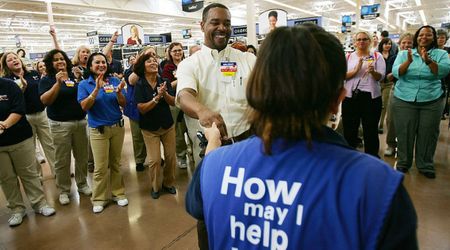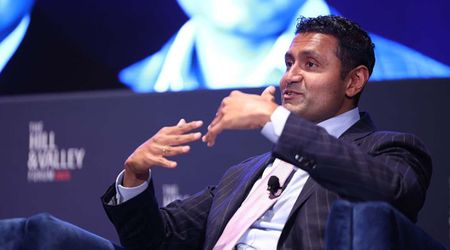LA Woman Sparks Dialogue on Young Americans Juggling Multiple Jobs for Survival; Netizens Relate

A TikTok video by Isabella Azar (@withbellsmedia) has ignited a conversation about the growing trend of young Americans working multiple jobs just to make ends meet. Azar, a marketing consultant based in Los Angeles, expressed frustration at the necessity for some individuals to take on second jobs to cover expenses despite holding corporate positions.

In her viral video, Azar highlighted the plight of a woman who, despite working a corporate job, found it insufficient to meet her financial needs. To bridge the gap, she took on a weekend waitressing job, sacrificing her leisure time for additional income. Azar's commentary resonated with many, shedding light on the economic challenges faced by a significant portion of the younger workforce. According to Azar, the promise of financial stability that often accompanies a college degree seems elusive for many in her generation. The burden of student loan debt coupled with wages that fail to cover basic expenses has forced individuals to seek supplementary income through second jobs. This phenomenon, as Azar describes it, reflects a broader systemic issue undermining the traditional notion of upward mobility through education and employment.

The Economic Policy Institute (EPI) highlights a concerning trend known as the "productivity-pay gap." While productivity has surged over the years, workers' wages have failed to keep pace. This disparity, characterized by a significant increase in productivity compared to stagnant wage growth, exacerbates financial insecurity for many workers, particularly younger generations. Data from a 2023 study by Kantar reveals that nearly a third of workers across ten countries hold second jobs due to economic concerns. Among them, Gen Z constitutes the largest demographic, with 40% of young workers juggling multiple jobs to supplement their income. Despite a reported 22% increase in hourly wages between March 2020 and February 2024, many individuals still struggle to make ends meet, contributing to the prevalence of second jobs.

Azar's concerns extend beyond personal financial struggles to encompass broader economic implications. She emphasizes the adverse impact of a culture dominated by overwork, where individuals forego leisure activities and discretionary spending in favor of additional employment. Such behavior, she argues, hampers economic growth by stifling consumer spending and reducing overall demand. On TikTok, users voiced their frustrations about the challenges of making ends meet despite having higher education degrees. @VDogg609 said, "I have a biology degree but I just started working at Home Depot because my healthcare job paid less." @Cozycow7 revealed, "The way I'm a literal engineer and do Doordash after work." @VinesNotComingBack expressed dismay, stating, "And then they ask why we’re not having kids."

@Kelly H, a state employee, highlighted the struggle, stating, "I work for the STATE and I don’t make enough to survive." @bonn3tbandit criticized corporate policies, saying, "Corporate is trying to make 2 jobs illegal and now the side hustles are being taxed heavily." @Inari shared the distressing reality, noting, "People are canceling their insurance plans just to make ends meet. It's awful." @Linda Jessogne recounted her experience, saying, "My corporate job told me I had to quit my bartending job because ‘it’s interfering’ or I’d be fired."
The implications of reduced consumer spending are far-reaching, as evidenced by findings from a 2023 Bank of America poll indicating that 73% of Gen Z individuals have cut back on spending due to economic concerns. This shift in consumer behavior has repercussions for various sectors of the economy, potentially dampening economic growth and increasing the likelihood of a recession. The government's issuance of pandemic stimulus checks aimed not only to alleviate financial hardship but also to stimulate economic activity by encouraging spending. However, the sustained reduction in consumer savings since the onset of the pandemic, as reported by USA Today, raises concerns about future spending patterns and their impact on economic stability. With consumption accounting for a significant portion of the economy, any slowdown in spending could have cascading effects on overall economic performance.
@withbellsmedia This economy is infuriating #economy #money #finance #job #opinion ♬ original sound - BellaUGC
For more such content, you can follow Isabella Azar @withbellsmedia on TikTok.






















